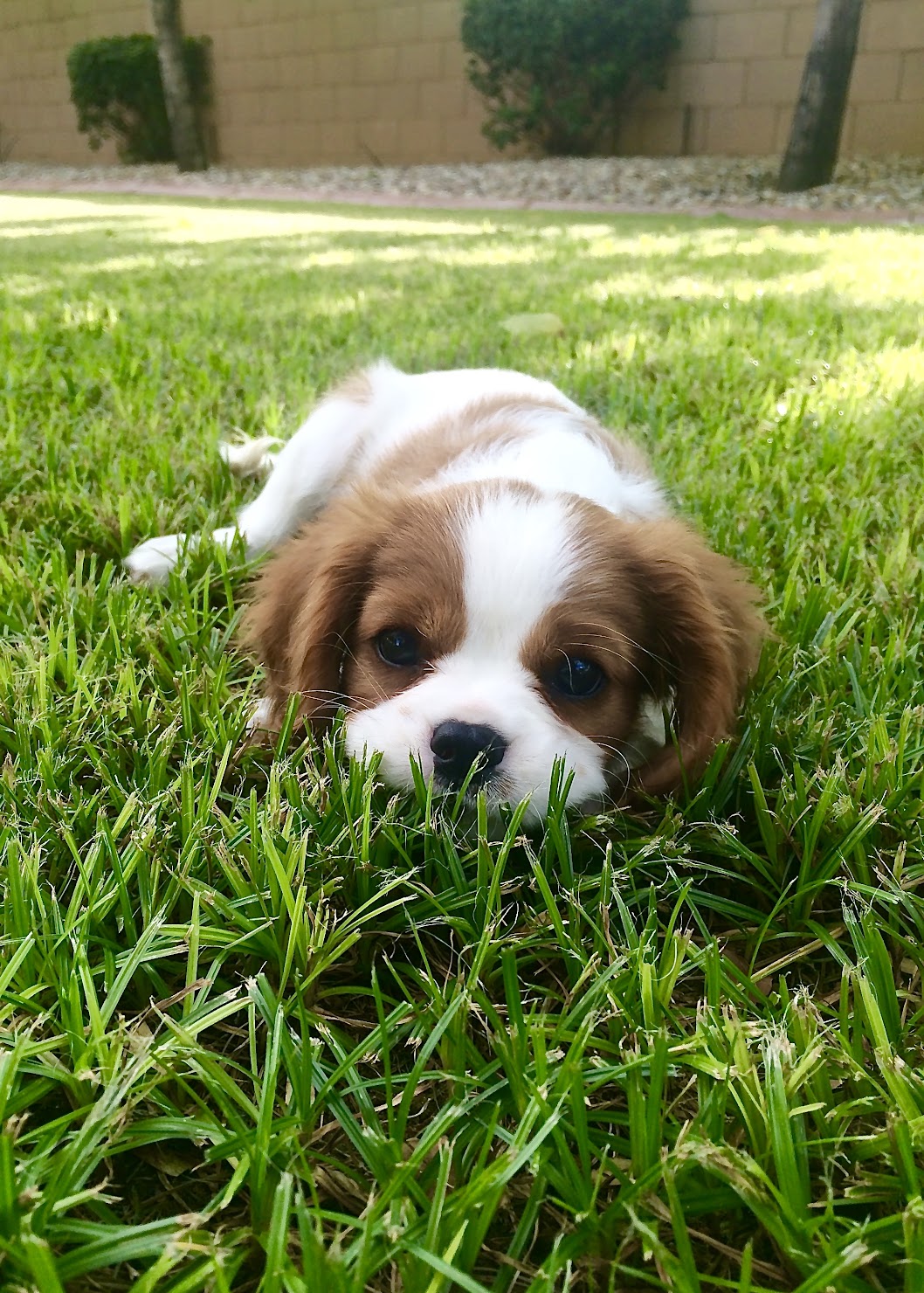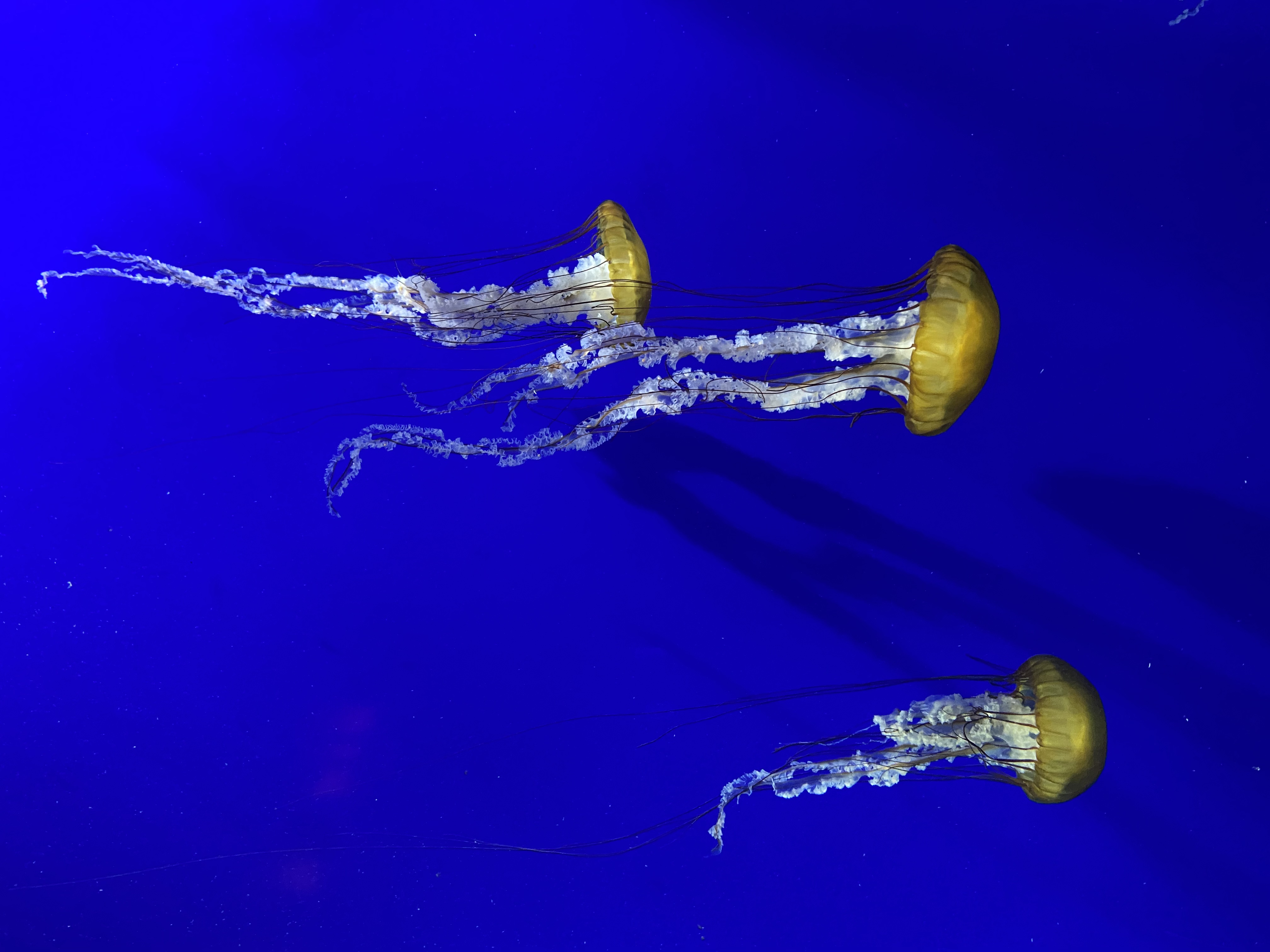Submitted by DeeAnna Berry, Texas A&M University (via IVEC)
 "When I first arrived in South Africa, I was told, 'The only man I envy, is the man who has not yet been to Africa - for he has so much to look forward to.' - Richard Mullin. I did not know what to expect when our host, Dr. Gary, shared this quote. Little did I know what I had gotten myself into. From working with the strong cape buffalo to handling cheetahs, the fastest animal in the world, I know that when I share my stories with others, it may be hard for them to believe me. An experience that displayed the role of conservation medicine was the opportunity I had to work with a veterinarian on a game reserve. This property allowed guests to join the veterinarian while treating and regulating the wild animals on the reserve; this offered a great opportunity to show the community how important conservation medicine is. While we were there, we worked with a rhino, elephant, leopard, and lions. We placed tracking collars on them, attended to wounds, and applied contraceptives to avoid inbreeding within the lion population. I enjoyed these activities because they allowed me to see how these experiences moved the guests. This once-in-a-lifetime opportunity now holds an essential part in my education because I gained hands-on experience working with wild species, practiced pharmacological uses in the field, educated spectators, and gained confidence in my techniques.
"When I first arrived in South Africa, I was told, 'The only man I envy, is the man who has not yet been to Africa - for he has so much to look forward to.' - Richard Mullin. I did not know what to expect when our host, Dr. Gary, shared this quote. Little did I know what I had gotten myself into. From working with the strong cape buffalo to handling cheetahs, the fastest animal in the world, I know that when I share my stories with others, it may be hard for them to believe me. An experience that displayed the role of conservation medicine was the opportunity I had to work with a veterinarian on a game reserve. This property allowed guests to join the veterinarian while treating and regulating the wild animals on the reserve; this offered a great opportunity to show the community how important conservation medicine is. While we were there, we worked with a rhino, elephant, leopard, and lions. We placed tracking collars on them, attended to wounds, and applied contraceptives to avoid inbreeding within the lion population. I enjoyed these activities because they allowed me to see how these experiences moved the guests. This once-in-a-lifetime opportunity now holds an essential part in my education because I gained hands-on experience working with wild species, practiced pharmacological uses in the field, educated spectators, and gained confidence in my techniques.
 The most memorable experience from my trip is having the privilege of working with white rhinos. Working with this species was remarkably humbling. Each time we worked with a rhino, I was reminded of what we had to take away from them to save their lives. This is because poachers will kill rhinos for their horns and sell them on the black market. One of my journeys involved traveling to a ranch hidden multiple miles off the main road. Within this ranch were dozens of young and old rhinos living in a secluded area surrounded by mountains. Seeing this property help the species survive was truly a miracle. Our job was to immobilize rhinos and dehorn them. This task required a group of people to make it possible: a veterinarian, a helicopter pilot, the anti-poaching unit, and a state representative to regulate the collection of the horns. As we dehorned these animals, I acknowledged that we were taking a piece of their identity, a horn that makes them the beautiful animals they are in the first place. Looking back on our impact at the ranch, it was a privilege to work with the rhinos, and at the same time, a burden that we had to take something so important away from them to save their lives. Therefore, we must educate others about the importance of conservation medicine and continue finding tactics to solve this problem.
The most memorable experience from my trip is having the privilege of working with white rhinos. Working with this species was remarkably humbling. Each time we worked with a rhino, I was reminded of what we had to take away from them to save their lives. This is because poachers will kill rhinos for their horns and sell them on the black market. One of my journeys involved traveling to a ranch hidden multiple miles off the main road. Within this ranch were dozens of young and old rhinos living in a secluded area surrounded by mountains. Seeing this property help the species survive was truly a miracle. Our job was to immobilize rhinos and dehorn them. This task required a group of people to make it possible: a veterinarian, a helicopter pilot, the anti-poaching unit, and a state representative to regulate the collection of the horns. As we dehorned these animals, I acknowledged that we were taking a piece of their identity, a horn that makes them the beautiful animals they are in the first place. Looking back on our impact at the ranch, it was a privilege to work with the rhinos, and at the same time, a burden that we had to take something so important away from them to save their lives. Therefore, we must educate others about the importance of conservation medicine and continue finding tactics to solve this problem.
In conclusion, I express my sincere gratitude for the vital financial support you provided for my participation in the Summer 2023 African Wildlife Conservation Medicine course. This experience in Johannesburg, South Africa, has left a mark on my understanding of veterinary medicine's profound role in preserving native species and fostering community engagement. Witnessing the impact of conservation medicine on the wildlife in the Limpopo province has inspired me to make a meaningful difference in my community, where I can address the needs of exotic herds while advocating for conservation practices. The opportunity to work with extraordinary creatures has provided me with remarkable stories that I will carry with me always. Once again, I extend my deepest gratitude for your generous support, which has enriched my education and fueled my passion for conservation medicine."
 Monday, September 11, 2023 at 12:00PM
Monday, September 11, 2023 at 12:00PM 
 Winners,
Winners,  cutest pet
cutest pet 




